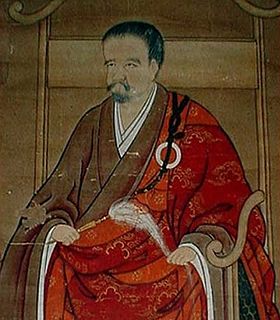A Quote by William Blake
The Man who never in his Mind & Thoughts travel'd to Heaven Is No Artist.
Related Quotes
When Heaven is about to confer a great office on a man, it first exercises his mind with suffering, and his sinews and bones with toil ; it exposes his body to hunger, and subjects him to extreme poverty ; it confounds his undertakings. By all these methods it stimulates his mind, hardens his nature, and supplies his incompetencies.
When a man’s heart is cold and unconcerned about religion – when his hands are never employed in doing God’s work – when his feet are not familiar with God’s ways – when his tongue is seldom or never used in prayer and praise – when his eyes are blind to the beauty of the kingdom of heaven – when his mind is full of the world, and has no room for spiritual things – when these marks are to be found in a man the word of the Bible is the right word to use about him, and that word is, ‘Dead.’
A sweet attractive kind of grace, A full assurance given by looks, Continual comfort in a face, The lineaments of Gospel books; I trow that countenance cannot lie, Where thoughts are legible in the eye. Was never eye, did see that face, Was never ear, did hear that tongue, Was never mind, did mind his grace, That ever thought the travel long- But eyes, and ears, and ev'ry thought, Were with his sweet perfections caught. [trow; believe or think]
Thoughts and emotions which never perhaps were in the mind of the artist, never were anticipated, never were intended by him - may be strongly suggested by his work. This is an important part of the morals of art, which we must never lose sight of. Art is not only for pleasure and profit, but for good and for evil.
What we are today comes from our thoughts of yesterday, and our present thoughts build our life of tomorrow: our life is the creation of our mind. If a man speaks or acts with an impure mind, suffering will follow him as the wheel of the cart follows the beast that draws the cart. If a man speaks or acts with a pure mind, joy follows him as his own shadow.





































